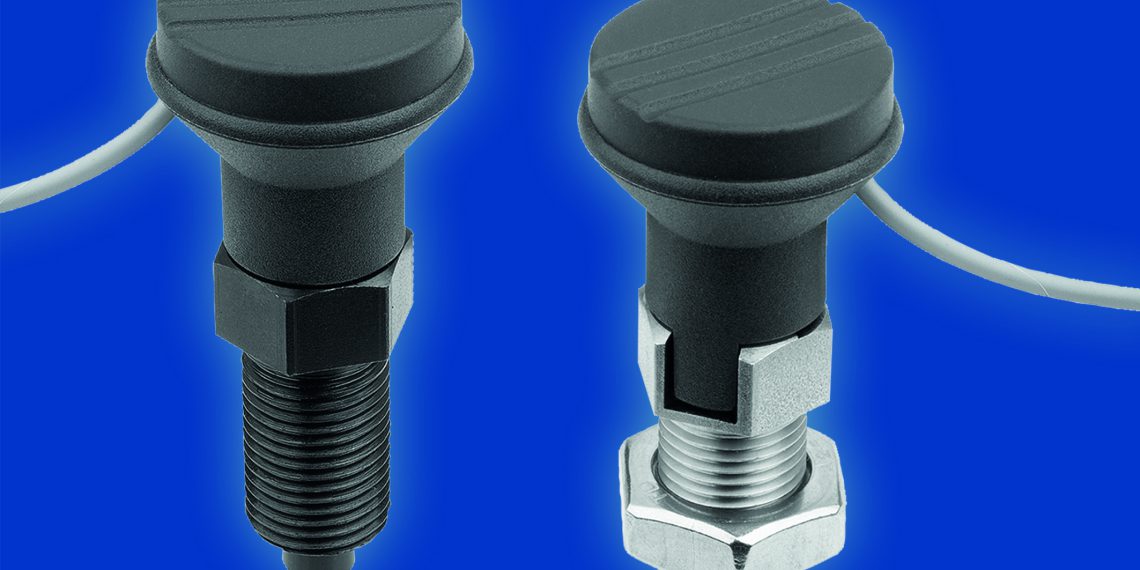As an alternative to the wireless Bluetooth variant, the Heinrich Kipp plant now also has a cable-connected locking pin with status sensor in its product range. With this product, users are independent of battery runtimes, for example in mechanical engineering, assembly and testing devices or in packaging machine construction. In addition, interference-free signal transmission is guaranteed at all times, even at longer ranges with obstacles. The new locking pins are part of the FEATUREgrip product line, which enables intelligent process monitoring.
The integrated inductive sensor of the locking bolt detects the actuation status. The signal is processed in the mushroom grip and transmitted to the machine control system; a two-meter, three-core cable is provided for this as standard. The sensor switches as soon as the bolt is pulled 1 mm. A machine control system can be used, for example, to specify that the machining cycle does not start until all the studs are in the correct position.
With IP67 protection, the cable-connected design components are resistant to splash water, protected against contact and dust-tight. In addition, users can choose from (hardened or non-hardened) stainless steel versions. Models are available with pin diameters of 5–12 mm and in thread sizes from M10 to M20.
These locking bolts are very suitable, for example, for fixing and clamping in guide systems, in monitored assembly equipment, classically in swiveling or rotating devices, and for stop positioning. Machine parts can thus be brought into a new position only after the bolt has been disengaged and then clamped again. This prevents the locking position from being changed by lateral forces. Around 1,300 versions are available from the company in various sizes, shapes, actuation types, precision levels and materials. In addition, special designs are also realized on request.
The special feature of the product line is the installation of integrated electromechanical and sensory elements. They provide feedback on specific parameters or states and thus ensure process reliability, which is becoming increasingly important in mechanical engineering.

















